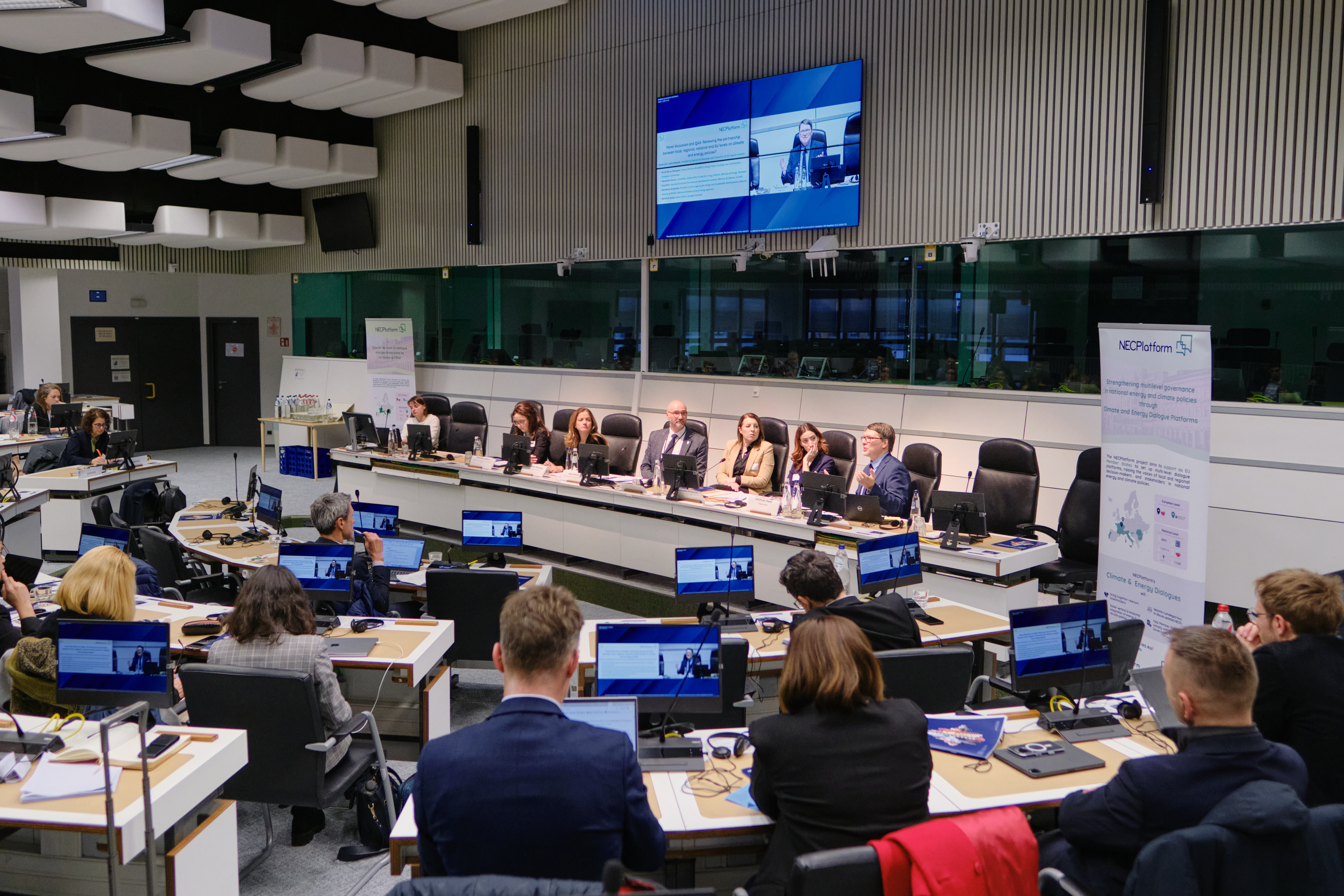The event was organised by the NEC Platform, a project designed by Energy Cities to amplify the voices of local decision-makers and stakeholders in shaping national energy and climate policies. This event was a great opportunity for EURADA to hear first-hand the views of experts on climate and energy governance and learn from them, applying their viewpoint to our ongoing projects.
The event was introduced by Urszula Zielinska (secretary of state in the polish ministry of climate and environment), whose intervention was followed and complemented by, Josko Klisovic (president of Zagreb city assembly and CoR member) who delved into the concepts of the main theme in more depth.
Mr. Klisovic explained that the main challenges to ensure an effective multi-lateral governance are the overlapping goals, policies, and plans at regional, national, and European levels, which lead to conflicting and inconsistent reporting procedures. The lack of a standardised reporting methodology also makes it difficult for stakeholders to comply, resulting in confusion and administrative burdens.
According to him, cities need significant resources—financial, administrative, and workforce-related—to implement policies effectively. Political barriers arise as national governments control funding, often creating tensions with city authorities. Simplifying cofinancingrules and attracting private investment through incentives is crucial.
Mr. Klisovic also emphasised the need to create solutions like streamlining procedures, ensuring policy alignment, securing government commitment to financing, enhancing local administrative capacity, and fostering communication between local and EU authorities. However, he noted that challenges such as rigid legal frameworks and lack of public support hinder implementation.
Speaker Giulia Pizzini (IEECP Institute for European Energy and Climate Policy) cited Article 11 of the Regulation on the Governance of the Energy Union and Climate Action (1999/2018), which obliges Member States to create a multi-level climate and energy dialogue, enabling local authorities, civil society, businesses, investors, and the public to discuss policy scenarios and review progress. She then went on to specify the criteria for an effective dialogue platform: a structure independent from the political sphere, legitimacy of the actors involved, necessary patience to achieve meaningful results, flexibility, persistence and regularity, safety and trust, and relationships.
The NECP project, which put Article 11 into action, aimed to understand what makes good dialogue platforms, set them up, and produce guidelines for replication, as well as a peer-to-peer programme to support other countries in their efforts.
Afterwards, a panel of several policy makers and researchers from the European Commission and other Institutions then went on to answer Mr Klisović’s questions. In her answers to the questions, Ms. Abreu Marques (DG ENER.A, EC) emphasised the need for multi-level governance for the successful implementation of initiatives and the achievement of concrete results. She also touched upon the critical and growing role of regional and local actors in this respect.
The panel continued discussing challenges felt in specific regions (Romania and Croatia) when implementing the project at hand. Ms Mares (Romanian Ministry of Energy) stated the three main challenges encountered in the implementation of the project in Romania were a fragmented policy framework, a resistance to change from regions when adopting new policies regions deem to be disconnected from their specific needs, and different systems for data collection. To counter these challenges, she recommended preparing national guides, tailored to specific national contexts, on the obligations of the NECPs. In Croatia, Ms Brighenti (President of AESS) discussed the establishment of a cooperation with the financial sector, which demonstrated that the cost of inaction would be much higher with the damages of climate events. Consequently, she advocated for the continuation of the project. Mr Duwe (Head climate, Ecologic institute) concluded the panel discussion by sharing insights from his latest research and reminding attendees about the importance of sharing what matters in the dialogues.
